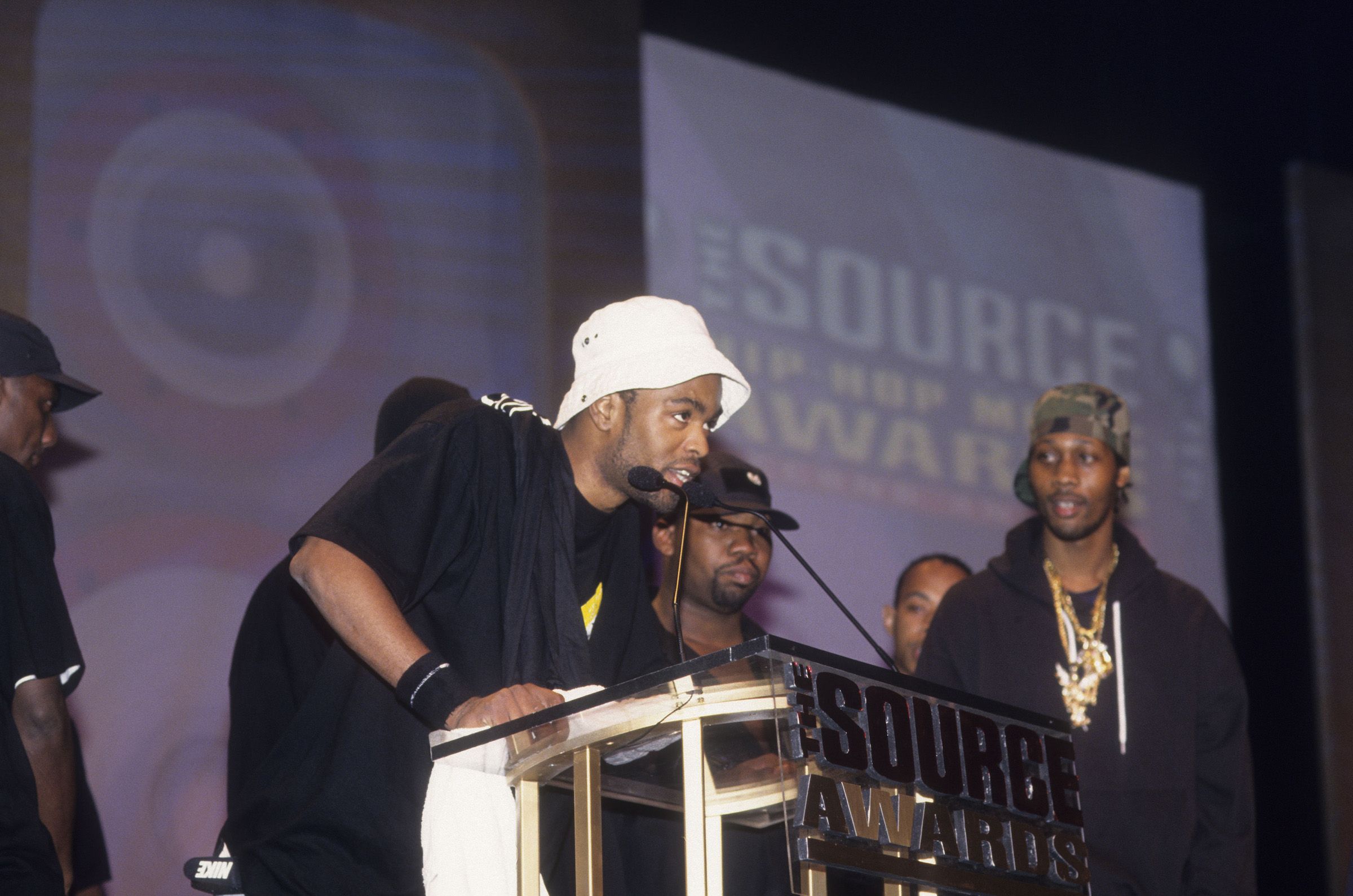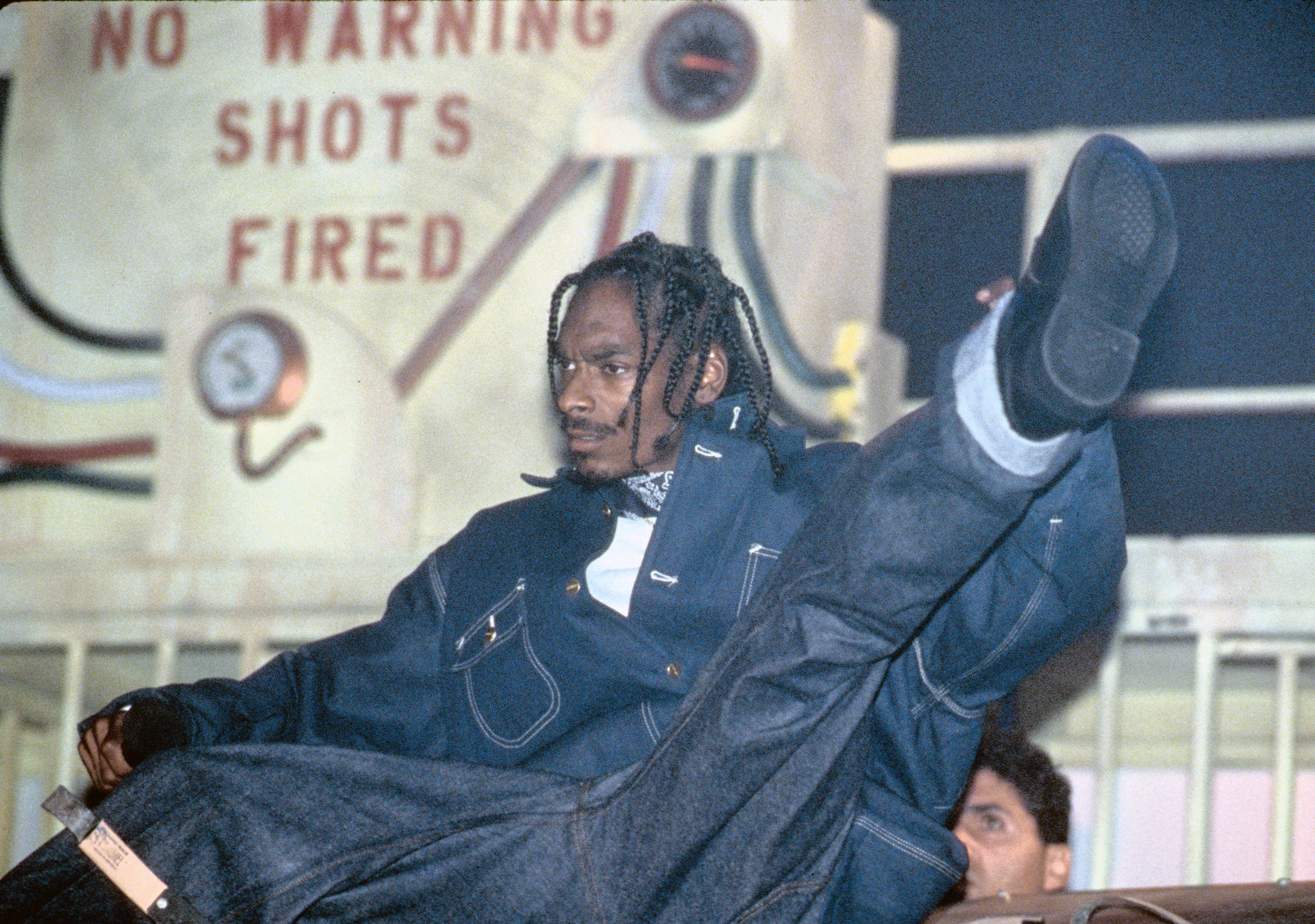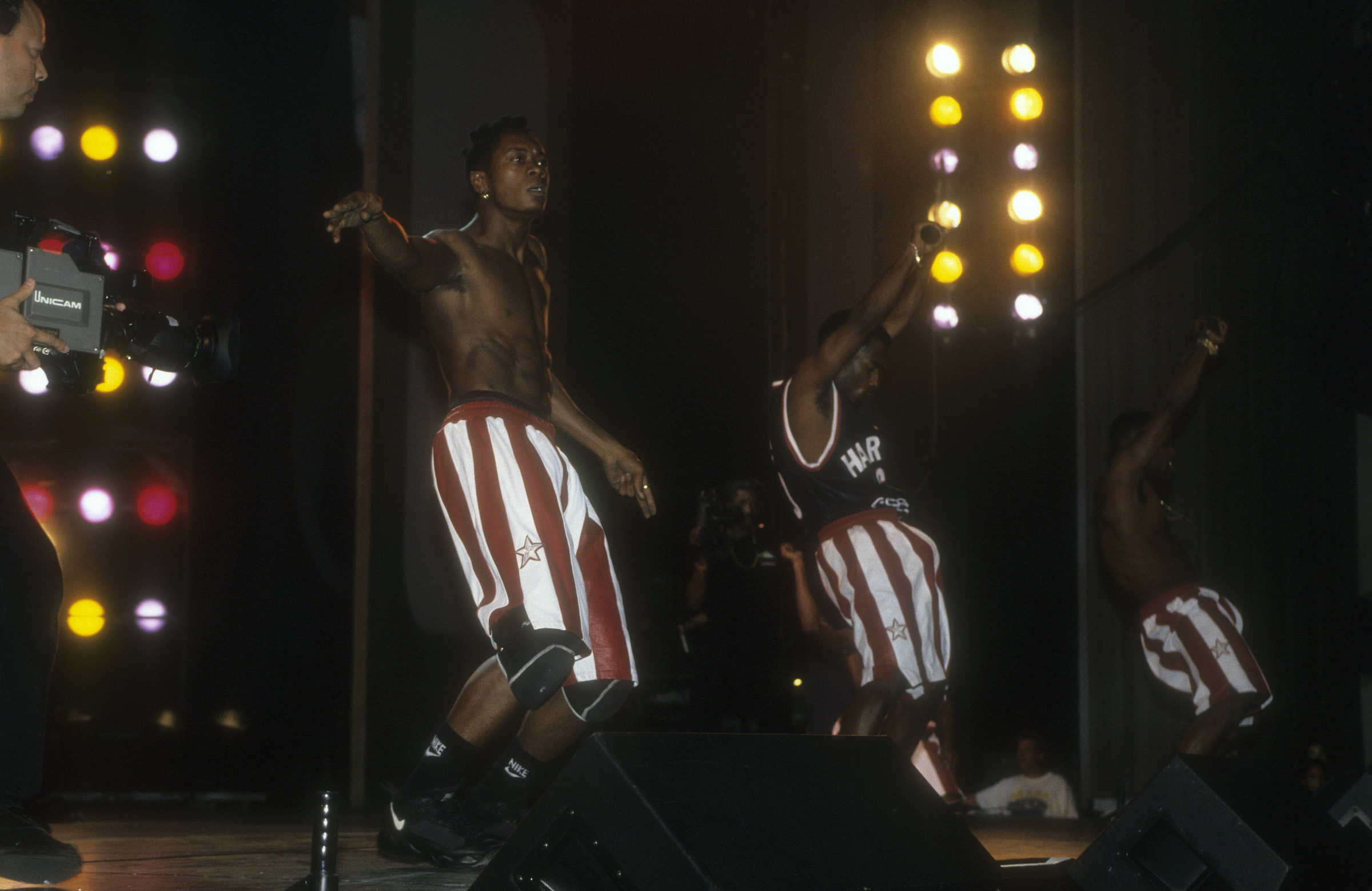As a person who loves history, I'm one of those people who can spot a historical moment as it's happening—both as a participant and as an outside viewer. So, to be two years older than what we consider to be the birth of hip hop and to grow up with it like a sibling is a fortunate feeling because I got to witness a lot of firsts. Every time I’ve experienced these seismic shifts, I've taken note of where I was because music is a polaroid of memory—a song, a melody, an album is classic because you know where you were the second that you heard it. Sometimes, this shifting of paradigms was to the benefit of hip hop and sometimes, unfortunately, to its detriment. But nothing could’ve prepared me for the moment when hip hop, as I knew it, changed forever: the 1995 Source Awards.
The ’95 Source Awards was a funeral in hip hop’s history, and I don’t say that in hindsight. I knew it walking into the Paramount Theater in New York City that day on August 3, 1995, and I knew it running away. And when I say running, I'm not exaggerating. I was running for my life—it felt like the creative version of Apocalypse Now.
Hip hop was created as a rejection of the opulence of Studio 54 culture, a direct result of Black people historically being edged out from places of social mobility and of consistently being the “have nots.” But by the time the 90’s rolled around, hip hop was slowly turning into the very thing that it was once against.

In 1992, Dr. Dre released The Chronic, and what really made that album notable was that it signaled the first push toward the rock-star lifestyle in hip hop. While Nirvana at the time was rejecting all those things that hair metal rockers stood for—all the women, the money, the drugs—and deep-diving into nihilism, The Chronic, while not blatantly representing opulence, was the blueprint that Sean Diddy Combs listened to and made the new standard.
In the people's eyes, The Chronic was the first album by a credible producer and emcee that didn't have to pander to a very safe, we-come-in-peace formula that your grandma was singing along to. Snoop Dogg burst on to the scene as an incredible, promising new emcee and Dre became God at producing. They put big numbers on the boards, dominated MTV, and once New York saw that this was the golden ticket, suddenly everyone fell in line. Questionable compromises were made, and many acts felt cast aside, including The Roots. (We ultimately made the decision to move to Europe for two years of our record deal because of The Chronic’s effect.) Art was one thing, but survival became more important—and by any means necessary.
Read More: How Rap Became the Sound of the Mainstream
That was the mentality with which everyone was walking into the Paramount Theater in ‘95. Just a year prior at the first-ever, untelevised Source Awards, tensions were already building between Tupac and A Tribe Called Quest, not just further cementing the East versus West Coast rivalry, but also dividing New York into two—a sinister foreshadowing. And that’s exactly how the theater was split up, too: If you were facing the stage, the right side is where all the winners were, which was basically anyone two degrees to Combs. They looked shiny, which is kind of a thing that we didn't know that we had to do. In the middle was the other territories: the South, the Midwest, and the West Coast. So they were already defensive because they're in New York, and well, we were a bunch of pricks and looking at them in a very arrogant sort of way. And then on the left side were, I would say, the have-nots—New York-centric hip-hop; the people that would eventually become the grumpy old people that complain that hip hop is dead.
The first person that I noticed was Nas. As I saw him walk in, I noticed he was wearing a very peculiar red, white, and blue Tommy Hilfiger shirt. It was 4-XL—I think I could fit into that shirt, and I’m a big guy—and Nas was drowning in it. He made his way to his seat on the left side of the theater, four rows ahead of me, and sat down.


The big question of the night was who was going to get crowned for Rap Album of the Year. Would it be Nas’ Illmatic or Biggie’s Ready to Die? Having received a rare five-mic rating from The Source for Illmatic, Nas was the gold standard. It seemed like it could’ve been his night. But the momentum that Biggie had since his album came out was undeniable, and as he began to sweep one award after the next, Nas sank lower and lower into his seat as the night went on.
I was very familiar with Nas’s heartbreaking, defeated body posture, living in my low self-esteem back then. To this day, I wish I would have gone up to him and said, “Do not let this moment determine your future.” Because by the end of the night, I instantly knew that he was going to throw away everything, this whole night, and now do it: compete with Biggie. It wasn't until I spoke to Nas’ former manager, Steve Stoute, and he gave me his account of that moment, that it was confirmed to me. Nas felt dejected, like the last year was a total waste, and the result of that night was, in part, the release of his second album It Was Written. And while it was Nas’s most successful record that had his most successful single, it came at a cost. Nas was open for business—adjusting his music so people who embraced The Chronic and Ready to Die would also embrace him.
Literally one by one, everyone realized that they had to compromise. And I don't mean compromise as a four-letter word because nothing comes before your survival when you're a Black person. Often, Black people hate when rap critics, who are mainly white, are quick to use the term “sellout,” as if Black people aren't in a constant rat maze of fight or flight all their lives. Because yes, even your art might have to be sacrificed. And that realization, and the hopelessness that followed, was why the Source Awards was one of the most depressing days of my life. I didn’t know if I had a future.

Later in the night, as they were about to hand Dr. Dre the award for Producer of the Year and Snoop Dogg gave his infamous “East Coast ain’t got no love for Dr. Dre and Snoop Dogg” speech, none of us were sitting in our seats anymore. The energy, at that point, was reminiscent of old-fashioned Western barroom brawl. All I remember was I grabbed my date, and said, “We’re leaving right now.” And we ran for our lives. The second we heard “Dr. Dre, Snoop Dogg,” I thought, ”We're all going to die.”
At the time, it wasn't even hyperbole, but in a metaphorical slow way, I was right. The hip hop that I knew, loved, embraced was gone, and that night, the hourglass turned over. But as I was running out of that place, there was this one guy in the street that came up to me, and said, “Yo, take this.” He put the cassette in my hands, and it said D'Angelo, Brown Sugar. Now, normally, I never took demos, but I just put the tape in my pocket and kept running. When I got back to my hotel room, and listened to just how good the cassette was, I sat there and realized that I had a chance to be on this record, and I didn't do it. I had to make music with this guy.
I don't think it's a coincidence that, on the day that I thought the culture was ending, I would meet the very person I would wind up creating Voodoo with, another paradigm shifting masterpiece—for us. That was my introduction to him—a rebirth, on what I felt was ultimately hip hop’s funeral.
—As told to Rachel Sonis
More From TIME
More Must-Reads from TIME
- Introducing the 2024 TIME100 Next
- The Reinvention of J.D. Vance
- How to Survive Election Season Without Losing Your Mind
- Welcome to the Golden Age of Scams
- Did the Pandemic Break Our Brains?
- The Many Lives of Jack Antonoff
- 33 True Crime Documentaries That Shaped the Genre
- Why Gut Health Issues Are More Common in Women
Contact us at letters@time.com
